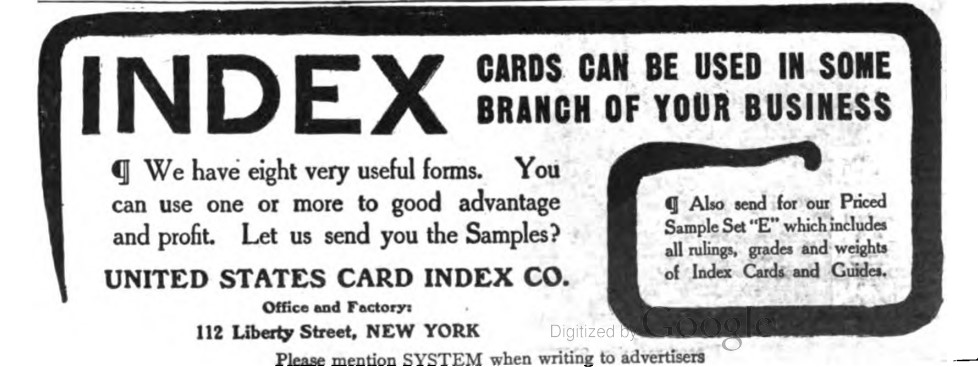Oh, but it is ZK furniture in every sense! The narrow definition of zettelkasten in common use (in this subreddit and in many other locations on the internet) to describe only card indexes/digital software which have the numbering scheme and form of Niklas Luhmann's only works for his and a number of imitators from roughly 2007/2013 to the present. Prior to this it is a much more generic term in Germany and elsewhere known in English as a card index or card file, but academics and others have been using practices broadly similar to Luhmann's for centuries in a variety of forms.
You're likely right that this particular piece of furniture had a business-specific market use case for the majority of its users, but I'm sure there was a subset of customers, particularly those in academia, which may have used it primarily as a note storage or personal knowledge management tool in a way highly similar to Luhmann's. Because it was in America, it was unlikely to have been called by the German name zettelkasten, though there were many German-Americans (Gotthard Deutsch and S. D. Goitein come to mind) who had this practice and may have done so, though I've seen no direct evidence of this at present in their writings. Not all card indexes were used for business or library purposes. In addition to academic researchers, we know a variety of mid-century comedians used their card indexes for collation and storage of jokes over their careers.
The quality of the advertisement is hard to make out, but on close examination it appears to have four drawers and the scale leads me to think that this would likely have accommodated 3 x 5" index cards. Some upcoming research work may uncover the manufacturing specifics and I'll share them as I find them.
As for Harrison and Placcius they're definitely there and people talk about them occasionally, though few seem as interested in the historical aspects despite the fact that they have a lot to demonstrate about the pros/cons of various practices. I remember adding them both to the English wikipedia page in July 2021. Certainly they could stand to be more widely known for their work, as could Leibniz. More on both can be found mentioned in the following:
- Cevolini, Alberto. “Where Does Niklas Luhmann’s Card Index Come From?” Erudition and the Republic of Letters 3, no. 4 (October 24, 2018): 390–420. https://doi.org/10.1163/24055069-00304002.
- Blair, Ann M. Too Much to Know: Managing Scholarly Information before the Modern Age. Yale University Press, 2010. https://yalebooks.yale.edu/book/9780300165395/too-much-know.
- Blei, Daniela. “How the Index Card Cataloged the World.” The Atlantic, December 1, 2017. https://www.theatlantic.com/technology/archive/2017/12/how-the-index-card-catalogued-the-world/547271/.
- Vincentius Placcius. De arte excerpendi. Vom Gelahrten Buchhalten Liber singularis, quo genera et praecepta excerpendi... Gottfried Liebezeit, 1689. http://archive.org/details/bub_gb_IgMVAAAAQAAJ.
There's also a bit on Placcius in:
- Krajewski, Markus. Paper Machines: About Cards & Catalogs, 1548-1929. Translated by Peter Krapp. History and Foundations of Information Science. MIT Press, 2011. https://mitpress.mit.edu/books/paper-machines.
The bigger hero, in my opinion, is Konrad Gessner and his work from 1548 which outlined much of the common "rules" note takers, practitioners of ars excerpendi, zettelers, and card indexers have been using ever since, including an early idea which many would now call "atomic notes". Much of his work, however was transferring ideas of commonplace book practices of his day into the form of paper slips which were heavily used until mass manufacture of index cards in the 20th century made them cheap and plentiful. Within the note taking space online the community also broadly ignores influential figures like Agricola, Erasmus, and Melanchthon who make some big strides in popularizing a variety of methods in the 1400-1500s.














 (Photo archived into note taking folder as well.)
(Photo archived into note taking folder as well.)


